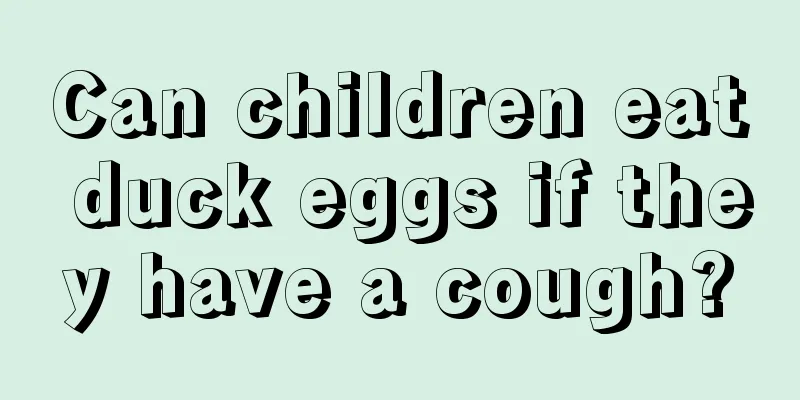What to do if your baby has hernia in one month

|
Hernia is a common disease in our lives, and children and the elderly are more likely to get hernia. For a one-month-old baby, hernia will affect the baby's normal diet and gastrointestinal function. So at this time, in order to prevent the baby's stomach from being affected, you must actively take the baby to treatment, and don't let the hernia leave sequelae. So what should I do if my one-month-old baby has hernia? Childhood hernia is also known as pediatric hernia. It is one of the common diseases in pediatric surgery. The main clinical manifestation is a reducible mass in the groin area shortly after the child is born. Most of them appear at 2 to 3 months old, but some may occur as late as 1 to 2 years old. The general incidence of hernia in children is 1-4%, the incidence in males is 14 times that in females, and it is even higher in premature infants, and it may occur on both sides. Causes of hernia in children (inguinal hernia) During fetal development, a boy's testicles develop in the abdomen, and then before birth, a pair of testicles descend into the scrotum through a canal in the tissue between the groin and the abdomen (called the "inguinal canal"). In girls, the ovaries also descend through the inguinal canal into the pelvic cavity (pelvis). Then the passage through the abdominal wall in the baby's body should close. In about 5% of babies (mostly boys, especially premature babies) the opening of this passage is still large enough for the intestine to slide down into the inguinal canal after birth, thus forming an inguinal hernia. An inguinal hernia will not heal on its own. How to care for a child with hernia? (1) Children with hernia should try to avoid and reduce crying, coughing, constipation, anger, strenuous exercise, etc. (2) Hernia patients should take good rest and, if they fall, gently push the hernia back into the abdominal cavity with their hands. (3) Hernia patients should try to reduce running, standing or squatting for long periods of time, and should lie down and rest when appropriate. (4) Hernia patients should increase their nutrition appropriately. They can eat some foods that have the effect of replenishing qi, such as lentils, yam, chicken, eggs, fish, meat, etc. (5) Older children with hernia should exercise appropriately to strengthen their physical fitness. Except for a few infantile hernias, most inguinal hernias cannot heal on their own. Treatment of hernia (inguinal hernia) in children For inguinal hernias in boys, your doctor may recommend minimally invasive surgery to treat your baby, usually around one year old. Because although inguinal hernia itself is not a big deal, the protruding intestinal tube may get stuck somewhere, affecting the blood supply to the local area and causing permanent necrosis of the tissue, which will have a great impact on the baby. If a baby with an inguinal hernia has his intestines stuck, you may notice that the mass suddenly becomes larger, harder, or even black, and you won't be able to press it back into the baby's abdominal wall. Your baby may feel pain and have bloating and vomiting. At this point, you should take him to the emergency room immediately because he will need surgery right away. Inguinal hernias in girls can also be treated with minimally invasive surgery. In addition, generally speaking, swollen labia of a girl after birth is most likely caused by too much fluid in the newborn baby or too much hormones from the mother before birth. This swelling is harmless and the fluid will pass out in your baby's urine within a few days after birth. |
<<: What to do if a baby girl has hernia
>>: What to do if your baby has hernia in three months
Recommend
What to do if your child has a dry nose
When children are young, they will suffer from ma...
The reason why babies often sleep restlessly
When the baby is sleeping, there should not be to...
How to promote bone development in teenagers
When children reach a certain age, their physical...
What should I do if my child's nose keeps bleeding?
Autumn and winter are the drier seasons of the ye...
What to do if your child has a persistent fever
Because children have poor resistance, they are p...
Treatment of diarrhea and watery stool in children
Diarrhea is very common. When you have diarrhea, ...
What are the effects and harms of phimosis in children
Phimosis in children is not unfamiliar to many pe...
The reason why children always have phlegm in their throats
Children generally have poor resistance and are o...
What to do if an 8-year-old child has a stuffy nose?
Children's bodies have very poor ability to r...
How to do facial pain scoring in children?
The face is rich in sensory cells, which are conn...
What causes lymphoma in children?
In fact, from current observations, we can find t...
How to massage for pediatric abdominal distension
Massage is very common. Massage is very helpful i...
How to treat cerebral palsy in children
Every family wants to have a healthy, cute and sm...
Children's spleen and stomach food conditioning
Many families pay great attention to the physical...
Children's recipes for nourishing and moistening the lungs
We may often see some babies and children in our ...









